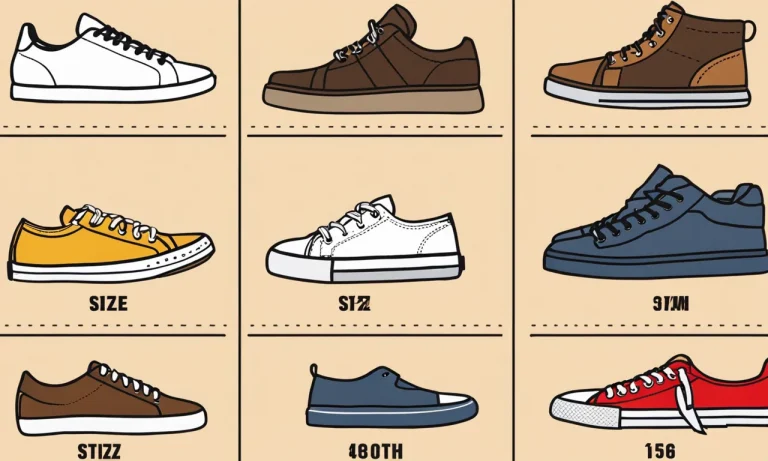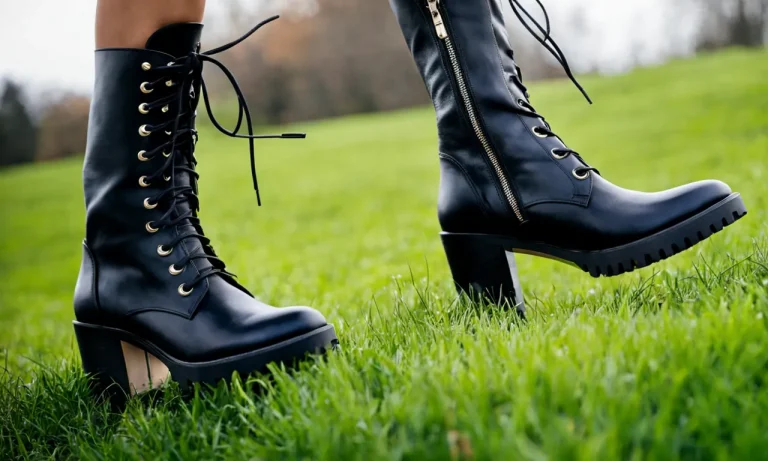Sneaker culture has exploded in popularity over the last decade, with limited edition sneakers from brands like Nike, Adidas, and Yeezy fetching prices well above their original retail value. This demand has led to the rise of sneaker bots – automated programs that help users buy coveted shoes online before anyone else.
If you’re short on time, here’s a quick answer to your question: using sneaker bots is not explicitly illegal in most places, but the use of bots does violate terms of service on many retail sites. Brands and retailers are increasingly taking steps to block bots, so there are legal risks involved.
In this comprehensive guide, we’ll take an in-depth look at sneaker bots, explain how they work to purchase shoes, explore the legal issues around their use, and discuss how brands are fighting back against bots.
What Exactly Are Sneaker Bots?
Sneaker bots are automated programs designed to purchase shoes online. They have gained significant attention in recent years due to their controversial nature. These bots work by automating the online checkout process, allowing users to purchase limited edition shoes before they sell out.
Automated programs that purchase shoes
Sneaker bots are sophisticated software programs that are specifically created to purchase shoes from various online retailers. They are designed to mimic human behavior and are capable of completing the entire purchasing process, from selecting the desired product to entering payment and shipping information.
These bots can complete multiple transactions simultaneously, giving users a competitive advantage over manual buyers.
Work by automating online checkout process
When a user wants to purchase a pair of limited edition sneakers, they typically have to go through a fast-paced online checkout process. This process involves adding the desired shoes to the cart, entering personal information, and completing the payment.
Sneaker bots automate this process by streamlining each step, significantly increasing the chances of successful purchases. They can bypass captchas, refresh pages, and quickly fill in the necessary information, giving users a higher chance of securing highly sought-after shoes.
Help users buy limited shoes before stock sells out
One of the main reasons people use sneaker bots is to buy limited edition shoes before they sell out. These limited releases often have high demand and low supply, making them extremely difficult to purchase manually.
Sneaker bots give users an advantage by allowing them to bypass the manual process and increase their chances of securing these highly coveted shoes. However, this advantage has led to controversy and debates surrounding the fairness of sneaker bot usage.
It is important to note that while sneaker bots can be effective tools for purchasing limited edition shoes, their use is often frowned upon by both retailers and consumers. Many argue that they give an unfair advantage to those who can afford to use them, creating an imbalance in the market.
Retailers have implemented various measures to combat sneaker bot usage, including anti-bot systems and raffles.
How Do Sneaker Bots Work?
Sneaker bots are software programs designed to automate the process of purchasing limited edition sneakers online. These bots work by utilizing web automation tools like Selenium, which allows them to interact with websites just like a human would.
This enables them to perform various tasks and actions on the website without any manual input.
Built using web automation tools like Selenium
Sneaker bots are built using web automation tools like Selenium, a popular open-source framework for automating browser actions. With Selenium, developers can write code that simulates user interactions such as clicking buttons, filling out forms, and navigating through web pages.
This enables the bots to mimic human behavior while making sneaker purchases.
Monitor product pages for restocks and releases
Sneaker bots are programmed to constantly monitor product pages for restocks and releases. They can scan multiple websites simultaneously, keeping an eye on specific sneakers and their availability. Once a restock or release is detected, the bot can quickly navigate to the product page and initiate the purchasing process.
Automatically add products to cart and fill out checkout info
When a sneaker bot identifies an available pair of sneakers, it can automatically add the product to the cart and fill out the necessary checkout information. This includes entering shipping addresses, payment details, and any other required information.
By automating this process, sneaker bots can complete purchases within seconds, giving them an advantage over manual buyers.
Usually require proxies to mask identities
Sneaker bots often require the use of proxies to mask their identities. Proxies act as intermediaries between the bot and the website, making it appear as though the bot is accessing the website from a different IP address.
This helps prevent the bot from being detected and banned by websites that have anti-bot measures in place.
Offer advanced options like captcha solving
Some sneaker bots offer advanced options like captcha solving. Captchas are security measures implemented by websites to verify that a user is human. Sneaker bots with captcha solving capabilities can automatically solve these puzzles, allowing them to proceed with the purchase process without any human intervention.
The Legality of Sneaker Bots
With the rise of sneaker reselling, the use of sneaker bots has become a controversial topic. Sneaker bots are automated software programs designed to purchase limited-edition sneakers as soon as they are released online. But are these bots illegal?
Not explicitly illegal in most jurisdictions
In most jurisdictions, the use of sneaker bots is not explicitly illegal. There are currently no laws that specifically address the use of these bots for purchasing sneakers. However, this doesn’t mean that their use is without consequences.
While the use of sneaker bots itself may not be illegal, many retailers have implemented policies that prohibit the use of bots. These policies are usually outlined in the terms of service or terms and conditions of the retailer’s website.
By using a sneaker bot, individuals are knowingly violating these terms of service, which could lead to consequences such as the cancellation of orders or even being banned from the retailer’s website.
Violate terms of service of most retailers
Most retailers explicitly state in their terms of service that the use of bots is not allowed. They view sneaker bots as a way to gain an unfair advantage over other customers and disrupt the shopping experience.
By using bots, individuals can bypass the usual purchasing process and secure multiple pairs of limited-edition sneakers, leaving genuine customers empty-handed.
It’s important to note that violating the terms of service of a retailer is a civil matter, not a criminal one. This means that individuals who use sneaker bots may face legal consequences in the form of civil lawsuits rather than criminal charges.
Retailers increasingly taking countermeasures
Due to the growing prevalence of sneaker bots, retailers have started taking countermeasures to combat their use. They have implemented various strategies to detect and block bot activity, such as CAPTCHAs, IP tracking, and queue systems.
These measures aim to level the playing field and give genuine customers a fair chance at purchasing limited-edition sneakers.
Likely violate federal CAN-SPAM Act
In addition to violating retailers’ terms of service, the use of sneaker bots may also run afoul of the federal CAN-SPAM Act. This act regulates commercial email messages and prohibits the use of deceptive practices in the sending of such messages.
Sneaker bots often use automated email notifications to alert users about restocks or new releases, which could potentially be considered as deceptive practices under the CAN-SPAM Act.
Bots contribute to limited supply and high prices
One of the main criticisms against sneaker bots is that they contribute to the limited supply and high prices of limited-edition sneakers. By enabling individuals to secure multiple pairs of sneakers, bots create artificial scarcity, driving up demand and prices in the reselling market.
This makes it difficult for genuine sneaker enthusiasts to purchase their favorite sneakers at retail prices.
Retailers Fight Back Against Bots
Sneaker bots have become a major headache for retailers, as they often lead to limited stock availability and frustrated customers. To combat this issue, retailers have implemented various strategies to fight back against sneaker bots and ensure a fair purchasing experience for all.
Here are some of the tactics they have employed:
Release shoes randomly or limit purchases
One approach that retailers have taken is to release highly sought-after shoes randomly, making it more difficult for bots to predict when they will become available. Additionally, some retailers have implemented purchase limits per customer to prevent individuals with bots from buying up large quantities of stock.
Use CAPTCHA and other bot detection
Many retailers have integrated CAPTCHA (Completely Automated Public Turing test to tell Computers and Humans Apart) systems into their websites to verify that the user is a human and not a bot. These systems require users to complete tasks that are easy for humans but challenging for bots, such as identifying specific images or entering a series of characters.
Ban accounts and IP addresses of bot users
Retailers are taking proactive measures by banning accounts and IP addresses associated with bot usage. By identifying and blocking these users, retailers aim to discourage the use of sneaker bots and ensure fair access to limited edition shoes.
Limit checkout speed to foil automation
Some retailers have implemented measures to slow down the checkout process, making it more difficult for bots to complete purchases quickly. By introducing delays or adding additional steps, retailers can disrupt the automated process used by sneaker bots.
Partner with companies developing bot mitigation tech
To stay one step ahead of sneaker bots, retailers have begun partnering with companies that specialize in developing bot mitigation technology. These partnerships help retailers to implement advanced solutions that can detect and prevent bot activity, providing a more level playing field for genuine customers.
It is important to note that the effectiveness of these strategies can vary, as sneaker bot developers are constantly adapting and finding ways to overcome these obstacles. Retailers must continue to innovate and invest in new technologies to stay ahead in the ongoing battle against sneaker bots.
The Ethics of Sneaker Bots
The use of sneaker bots in the world of sneaker culture has sparked a heated debate about their ethics. While some argue that they provide a fair advantage for those who use them, others believe that they disrupt the market and hinder the ability of regular consumers to purchase the sneakers they desire.
Let’s take a closer look at the ethical implications surrounding sneaker bots.
Bots make buying shoes harder for normal consumers
One of the main criticisms of sneaker bots is that they make it extremely difficult for regular consumers to purchase limited-edition sneakers. These automated programs can instantly add sneakers to cart and complete the checkout process faster than any human could.
As a result, many sneaker enthusiasts are left empty-handed, frustrated by the constant competition with bots.
This issue is particularly prevalent during popular releases, where sneaker bots can overwhelm websites and crash servers, further exacerbating the problem for genuine buyers. It’s disheartening for individuals who simply want to add a new pair of sneakers to their collection, only to find that they are constantly fighting against advanced technology.
Contribute to inflated resale prices
Another ethical concern surrounding sneaker bots is their contribution to inflated resale prices. When limited-edition sneakers are in high demand but low supply, sneaker bots allow resellers to purchase multiple pairs effortlessly.
These resellers then sell the sneakers at exorbitant prices, taking advantage of the scarcity created by the bots.
This practice not only makes it difficult for genuine sneaker enthusiasts to purchase sneakers at retail prices, but it also fuels a secondary market that thrives on exploiting the hype and exclusivity surrounding limited-edition releases.
This undermines the original intention of sneaker brands to provide unique and coveted products to their loyal customers.
Allow small groups to dominate limited markets
Sneaker bots also give small groups or individuals the ability to dominate limited markets. With the help of these automated programs, they can secure multiple pairs of highly sought-after sneakers, often leaving none for others.
This monopolization of limited releases creates an unfair advantage for a select few, preventing genuine fans from getting their hands on the sneakers they desire.
Furthermore, this domination of limited markets by a few individuals or groups not only goes against the principles of fairness and equal opportunity, but it also discourages new enthusiasts from entering the sneaker culture.
When newcomers see that the chances of acquiring the sneakers they love are slim due to bots, they may be discouraged from participating in the community altogether.
Counterargument: they level the playing field
Despite the ethical concerns surrounding sneaker bots, some argue that they actually level the playing field. They argue that since everyone has access to these bots, it becomes a fair competition among individuals who are willing to invest in the technology.
In this view, sneaker bots simply represent a new tool within the sneaker culture.
However, it is important to note that not everyone has the resources or technical knowledge to utilize these bots effectively. Regular consumers who are passionate about sneakers may not have the means to compete with those who have the financial resources to invest in advanced sneaker bot technology.
Conclusion
The use of sneaker bots occupies a legal gray area. While not explicitly illegal in most places, they clearly violate retailer terms of service and face countermeasures. The ethics of bots are also hotly debated between fans who see them as helpful tools, and critics who view them as monopolizing limited supplies.
Brands, retailers, and bot developers are locked in an arms race to outmaneuver each other. As bots get more advanced, so too do detection systems and purchase limits. The controversy over bots will likely continue as long as limited sneaker releases remain such a cultural phenomenon.






